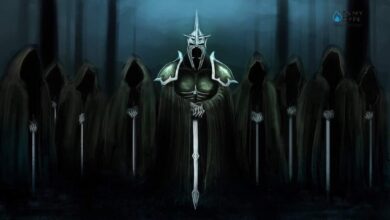The Calendar Killer Ending Explained: Does Klara Manage to Expose Martin? Who is the Real Villain?
The Calendar Killer, directed by Adolfo J. Kolmerer and taken from Sebastian Fitzek’s bestseller, promised sparks. And I admit it, I was curious. A plot that mixes tension, impossible choices, and a touch of social criticism? Sign me up. But not everything goes as smoothly as you would expect. “The Calendar Killer“(Sebastian Fitzeks Der Heimweg), available on Prime Video, is a psychological thriller that follows the story of Klara, a woman caught in an abusive relationship with her husband Martin, a powerful and manipulative man. The plot is complicated when Klara receives a terrifying warning from the infamous The Calendar Killer: December 6, or she or her husband will die. Through a call to help a nightly escort service called Walk Me Home, Klara connects with Jules, an empathetic volunteer. However, things are not what they seem, and the film takes us on a roller coaster of secrets, violence, and justice.

The Calendar Killer Ending Explained: Who is the Real Villain?
In the climax of The Calendar Killer, we discover that Jules, the kind volunteer who helps Klara throughout the film, is the killer. Behind his facade of empathy, Jules hides a traumatic past: his wife and children died in a fire caused by the aftermath of domestic abuse. Consumed by pain, Jules decides to “punish” abusers, offering victims a choice: kill their abuser or die themselves. Jules kidnaps Klara and Martin in their own home, leading them to a showdown. However, before Jules can execute his twisted plan, his father, who had been following him, stops him by shooting him. Jules dies, closing his cycle of revenge, but not before making clear the devastating impact of his loss.
Does Klara Manage to Expose Martin?
Yes, Klara finally manages to unmask Martin, who had used his position as secretary of state to cover up his abuse and manipulate the narrative on his behalf. Klara cunningly records a conversation where Martin admits to having physically and psychologically mistreated her. By making this recording public, Klara disrupts Martin’s reputation and brings him to justice. Although Martin receives a five-year sentence, the message is clear: power and manipulation cannot protect an abuser forever. Klara finds justice and a way to rebuild her life away from her torment.

Why did Jules become The Calendar Killer? Jules’ past reveals that his wife, Dajana, was the victim of child abuse, triggering years of depression. Dajana ended up taking her life, taking her children with her in an accidental fire that devastated Jules. This pain transformed him into a twisted vigilante, seeking “justice” on his own by punishing abusers extremely. However, his crusade was not driven by justice, but by unsolved trauma and hatred of a system that failed his family.
The Message of The Calendar Killer
The film is not only an exciting thriller, but also a reflection on the despair of victims of domestic abuse and the failings of the judicial system to protect them. Klara represents strength and resilience, while Jules embodies the uncontrolled anger that can arise from untreated pain. Although satisfactory in terms of justice, the outcome reminds us that not all victims have the same fate. The Calendar Killer requires a more effective legal and social framework to protect victims and prevent abuse before it is too late.
Conclusion of The Calendar Killer
The Calendar Killer is a tense and emotional thriller that explores the horrors of domestic abuse and the scars it leaves on everyone involved. With an outcome that mixes justice and tragedy, the film leaves us with a powerful message: the importance of believing in victims and working toward a world where abuse has no place.






